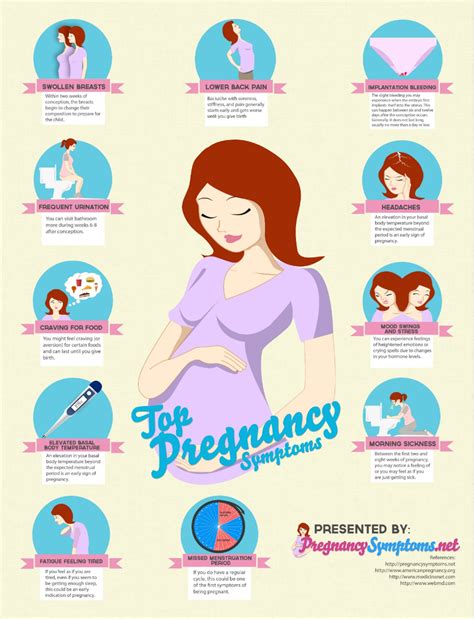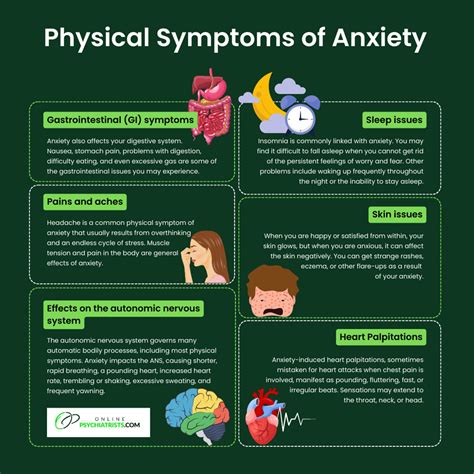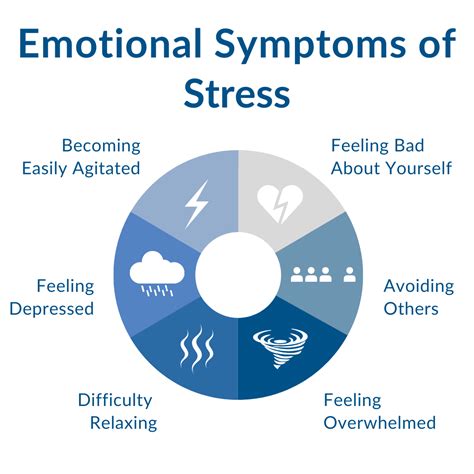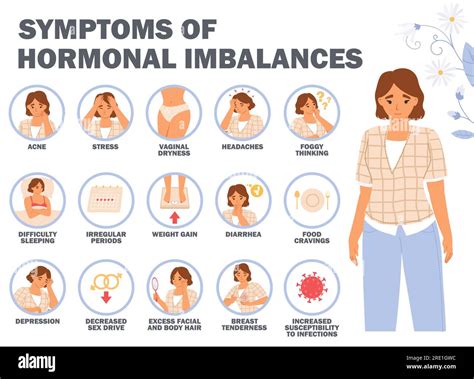Intro
Discover 7 common pregnancy symptoms, including morning sickness, fatigue, and mood swings, to help expectant mothers identify early signs of pregnancy and prepare for a healthy journey, covering prenatal care and pregnancy complications.
Pregnancy is a life-changing experience that brings about numerous physical, emotional, and hormonal changes in a woman's body. While every pregnancy is unique, there are common symptoms that many women experience during this period. Recognizing these symptoms is essential for expectant mothers to seek proper care and ensure a healthy pregnancy. In this article, we will delve into the world of pregnancy symptoms, exploring their causes, effects, and ways to manage them.
As soon as a woman becomes pregnant, her body starts undergoing significant transformations. Hormonal fluctuations, in particular, play a crucial role in triggering various pregnancy symptoms. The surge in progesterone and estrogen levels can cause a range of physical and emotional changes, from mild discomfort to severe complications. Understanding these symptoms is vital for women to navigate their pregnancy journey with confidence and prepare for the arrival of their baby.
The journey to motherhood is filled with excitement, anxiety, and uncertainty. As women embark on this life-altering adventure, they often find themselves wondering what to expect during the next nine months. Will they experience morning sickness, mood swings, or fatigue? How will their body change, and what can they do to ensure a healthy pregnancy? By exploring the common symptoms of pregnancy, women can better understand their bodies and take proactive steps to manage their health.
Introduction to Pregnancy Symptoms

Pregnancy symptoms can be broadly categorized into physical, emotional, and hormonal changes. Physical symptoms include morning sickness, fatigue, and back pain, while emotional changes encompass mood swings, anxiety, and depression. Hormonal fluctuations, on the other hand, can cause a range of symptoms, from breast tenderness to food cravings. By recognizing these symptoms, women can seek medical attention if necessary and adopt healthy habits to support their pregnancy.
Physical Symptoms of Pregnancy

Physical symptoms are often the most noticeable and uncomfortable aspects of pregnancy. Morning sickness, fatigue, and back pain are common complaints among expectant mothers. Morning sickness, in particular, can be debilitating, causing women to feel nauseous and vomit throughout the day. Fatigue, on the other hand, can be overwhelming, making it challenging for women to perform daily tasks. Back pain, which can be exacerbated by the growing uterus, can also cause significant discomfort.
Morning Sickness
Morning sickness is one of the most common physical symptoms of pregnancy, affecting up to 80% of women. Characterized by nausea and vomiting, morning sickness can occur at any time of day, not just in the morning. While the exact cause of morning sickness is unknown, it is believed to be triggered by hormonal changes, particularly the surge in human chorionic gonadotropin (hCG) levels.Fatigue
Fatigue is another prevalent physical symptom of pregnancy, caused by the increased demands of the growing fetus on the mother's body. As the fetus grows, it requires more oxygen and nutrients, leading to a decrease in the mother's energy levels. Fatigue can also be exacerbated by sleep disturbances, morning sickness, and emotional stress.Back Pain
Back pain is a common complaint among pregnant women, particularly during the second and third trimesters. As the uterus expands, it can put pressure on the back muscles, leading to discomfort and pain. Back pain can also be caused by poor posture, hormonal changes, and the weight of the growing fetus.Emotional Symptoms of Pregnancy

Emotional symptoms are a natural part of pregnancy, caused by hormonal fluctuations and the significant life changes that come with expecting a baby. Mood swings, anxiety, and depression are common emotional complaints among pregnant women. Mood swings can be triggered by hormonal changes, fatigue, and stress, while anxiety and depression can be caused by fear, uncertainty, and emotional vulnerability.
Mood Swings
Mood swings are a common emotional symptom of pregnancy, characterized by sudden and intense changes in mood. Women may experience feelings of irritability, anxiety, and sadness, which can be triggered by hormonal fluctuations, fatigue, and stress. Mood swings can be challenging to manage, but they can be alleviated by practicing relaxation techniques, such as deep breathing, meditation, and yoga.Anxiety and Depression
Anxiety and depression are serious emotional symptoms that can affect pregnant women. Caused by hormonal changes, fear, and uncertainty, anxiety and depression can have a significant impact on a woman's mental and physical health. It is essential for women to seek medical attention if they experience symptoms of anxiety or depression, as untreated mental health conditions can have long-term consequences for both the mother and the baby.Hormonal Symptoms of Pregnancy

Hormonal symptoms are a natural part of pregnancy, caused by the significant changes in hormone levels that occur during this period. Breast tenderness, food cravings, and skin changes are common hormonal symptoms that can be uncomfortable and challenging to manage. Breast tenderness, in particular, can be painful, while food cravings can lead to unhealthy eating habits. Skin changes, such as acne and stretch marks, can also be distressing for women.
Breast Tenderness
Breast tenderness is a common hormonal symptom of pregnancy, caused by the surge in estrogen and progesterone levels. Women may experience feelings of breast fullness, tenderness, and swelling, which can be uncomfortable and painful. Breast tenderness can be alleviated by wearing a supportive bra, avoiding tight clothing, and practicing relaxation techniques.Food Cravings
Food cravings are a prevalent hormonal symptom of pregnancy, caused by the significant changes in hormone levels that occur during this period. Women may experience cravings for specific foods, such as sweets, salty snacks, or spicy dishes, which can be triggered by hormonal fluctuations, nutritional deficiencies, and emotional stress. While food cravings can be challenging to manage, they can be alleviated by practicing healthy eating habits, such as consuming a balanced diet and avoiding unhealthy snacks.Managing Pregnancy Symptoms

Managing pregnancy symptoms is essential for ensuring a healthy and comfortable pregnancy. By practicing healthy habits, such as consuming a balanced diet, exercising regularly, and getting enough sleep, women can alleviate physical, emotional, and hormonal symptoms. Relaxation techniques, such as deep breathing, meditation, and yoga, can also help manage stress, anxiety, and emotional vulnerability.
Healthy Eating Habits
Healthy eating habits are crucial for managing pregnancy symptoms, particularly morning sickness, fatigue, and food cravings. Women should consume a balanced diet that includes plenty of fruits, vegetables, whole grains, and lean proteins. Avoiding unhealthy snacks, such as sugary drinks and processed foods, can also help manage food cravings and support overall health.Exercise and Physical Activity
Exercise and physical activity are essential for managing pregnancy symptoms, particularly back pain, fatigue, and emotional stress. Women should engage in regular physical activity, such as walking, swimming, or prenatal yoga, to alleviate physical discomfort and promote emotional well-being. Exercise can also help prepare the body for childbirth and support postpartum recovery.Conclusion and Next Steps

In conclusion, pregnancy symptoms are a natural part of the pregnancy journey, caused by hormonal fluctuations, physical changes, and emotional vulnerability. By recognizing these symptoms, women can seek medical attention if necessary and adopt healthy habits to support their pregnancy. Managing pregnancy symptoms requires a holistic approach that includes healthy eating habits, exercise, relaxation techniques, and emotional support. By prioritizing their health and well-being, women can ensure a healthy and comfortable pregnancy, preparing themselves for the arrival of their baby.
We invite you to share your experiences and thoughts on pregnancy symptoms in the comments below. If you found this article informative and helpful, please share it with your friends and family who may be expecting a baby. Together, we can support and empower women to navigate their pregnancy journey with confidence and joy.
What are the most common pregnancy symptoms?
+The most common pregnancy symptoms include morning sickness, fatigue, back pain, mood swings, and breast tenderness. These symptoms can vary in severity and duration, but they are typically triggered by hormonal fluctuations and physical changes during pregnancy.
How can I manage morning sickness during pregnancy?
+Morning sickness can be managed by practicing healthy eating habits, such as consuming small, frequent meals, avoiding trigger foods, and staying hydrated. Women can also try relaxation techniques, such as deep breathing, meditation, and yoga, to alleviate stress and anxiety.
What are the benefits of exercise during pregnancy?
+Exercise during pregnancy can help alleviate physical discomfort, such as back pain and fatigue, and promote emotional well-being. Regular physical activity can also prepare the body for childbirth and support postpartum recovery. Women should consult their healthcare provider before starting any exercise program during pregnancy.
